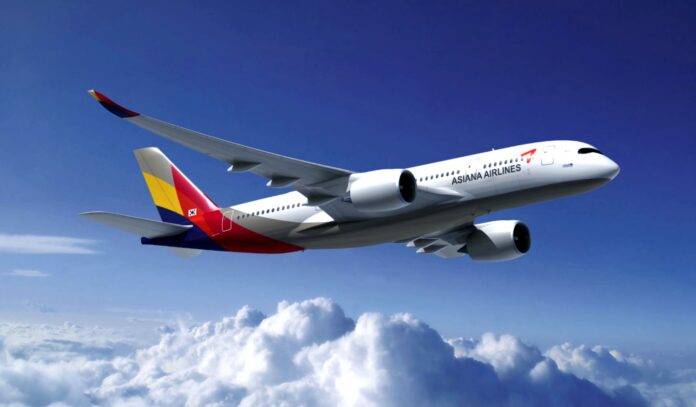Pending U.S. Approval, Korean Air Merger with Asiana Airlines Raises Concerns of National Loss – Ministry of Land Allocates Operating Rights to Foreign Airlines
Despite No Restructuring, Union Expresses Concern
Korean Air Commits to Upholding Basic Principles
(The travelnews=Lee Jungchan) The proposed merger between Korean Air and Asiana Airlines, valued in the billions for the domestic aviation industry, has sparked fears of substantial national losses.
According to industry sources on the 26th, both the Asiana Airlines pilots’ union and general union jointly declared, “We firmly oppose Korean Air’s acquisition and merger with Asiana Airlines due to clear concerns over national and public damages.”
The unions expressed apprehension that Korean Air’s acquisition process of Asiana Airlines would lead to a crisis of annual billions in national losses, as numerous air traffic rights could be relinquished.
For the Korean Air and Asiana merger, approval is required from 14 mandatory reporting countries. Competition authorities in various countries, concerned about route monopolies resulting from the merger, have set the return of air traffic rights as a condition for approval.
Last year, in line with conditional approval from British competition authorities, Korean Air and Asiana transferred 7 out of 10 and 7 out of 7 traffic rights respectively to British Virgin Atlantic.
Regarding this matter, Asiana’s union emphasized the management of traffic rights through negotiations between nations, pointing out that secured rights are allocated to national airlines through the Ministry of Land.
An Asiana Airlines pilot union official stated, “Since Korean Air has not disclosed how many traffic rights have been returned, it is impossible to know the exact amount,” adding, “As revenue-generating long-haul routes shrink, the scale of losses will not be in millions but billions.”
Although approvals for the merger have been completed by 13 countries, only partial details have been disclosed regarding the return of traffic rights.
Concerns over restructuring, which were raised from the initial stages of merger discussions, continue to persist. In a situation where losses due to the return of traffic rights are imminent, Asiana Airlines’ union argues that restructuring will inevitably become a necessary choice.
An Asiana Airlines pilot union official remarked, “As this is not a ‘one plus one’ merger, thousands are likely to be left idle,” and emphasized, “General office workers are deeply anxious about job security.”
Chairman Cho Won-tae of Hanjin Group has consistently indicated since the start of the merger in 2020 that there will be no forced restructuring. At a meeting with Korean Air employees earlier this March, he reaffirmed the existing policy of maintaining employment, acknowledging that additional workforce would be necessary in all sectors post-merger.
A Korean Air representative stated, “We will adhere to basic principles in post-merger workforce management, proceeding with the merger without restructuring.”
Initiated with the goal of launching a unified Full-Service Carrier (FSC) in November 2020, Korean Air’s acquisition of Asiana Airlines was realized with an 800 billion won investment from KDB Industrial Bank. Korean Air subsequently issued a 2.5 trillion won rights issue based on the industrial bank’s investment, securing 1.5 trillion won in new shares of Asiana Airlines and 300 billion won in perpetual bonds, thereby acquiring a 60% stake in Asiana Airlines.
Following the acquisition of shares, Korean Air submitted a merger declaration to 14 mandatory reporting countries to assess whether the merger would limit market competition. To date, competition authorities from 13 countries including Turkey, China, Australia, the United Kingdom, Japan, and Europe have approved the merger. Preceding procedures, such as the sale of cargo operations, are scheduled to be completed with U.S. authorities in October.










